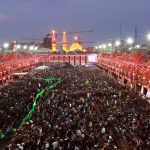A short article that discusses the sin of envy (hasad), its causes and effects, and presents a cure for it.
Envy (Hasad)
…Or do they envy [other] people because of what Allah has given them of His bounty? (The Holy Qur’an, chapter 4, verse 54)
Abu Abd Allah (al‑Imam al‑Sadiq) (AS) said that the Apostle of God (AS) said that God Almighty addressed Musa ibn Imran as follows: “O son of Imran, never be envious of people concerning the favors I have conferred on them by My grace; do not glower at them, and do not succumb to your (envious) self. Indeed, the envious man is indignant at the bestowal of My favour, and contests My apportioning of gifts among My creatures. Whoever is such, he neither belongs to Me nor do I belong to him.”
Hasad or malicious envy is a psychological state in which a person wishes for the deprivation of a blessing, talent, or merit possessed by another person (the mahsud). Islamic ethical teachings shed light on the causes and motives of hasad and its harmful spiritual, moral and social effects, and offer practical solutions for combating this spiritual disease.
The causes and motives of hasad
Qualities in others such as certain intellectual, spiritual, and moral merits, or good and pious deeds, or outward factors such as honour, prestige and wealth can cause hasad. Also, immoral or negative traits that are imagined to be merits can be a cause of hasad. Almost all of the causes of hasad are the products of a feeling of inferiority and dejectedness. When a person perceives others to be more perfect than himself, a feeling of inferiority seizes him, which, with the help of external factors and inner propensities, generates the feeling of envy in his heart. The scholar al‑`Allamah al‑Majlisi has mentioned seven causes and motives of hasad. We have listed these causes and in some cases provided examples of hasad corresponding to the cause:
- Enmity: Hasad can be the result of enmity. For example, enmity against another family, tribe or group can cause one to envy successes they achieve.
- The sense of one’s supremacy: The hasid (one who envies) anticipates the pride of the mahsud on account of a merit mahsud enjoys. Not having the patience to put up with this pride, the hasid feels a sense of superiority and earnestly desires the loss of this merit.
- Kibr (pride) and Wonder: The hasid high‑handedly treats the person who is conferred some merit, favour, or talent, and may wonder to see a great blessing enjoyed by the object of his envy. For example, a wealthy individual outwardly looks with disdain upon the respect enjoyed by a poor person believing that he deserves to be the recipient of such admiration.
- Fear and Love of authority: Also, the envious man is fearful of some hindrance on the part of the person enjoying an advantage or talent or merit that may frustrate his cherished objectives. Such fear manifests itself when one’s acquiring or preserving authority over others requires that nobody should share his advantages or merits. For example, one who wishes to be re-elected as the leader of an organization may desire that no other member step forward and exhibit leadership skills such as eloquence of speech and efficiency of organization and mobilization.
- Viciousness of nature: A human being of vicious nature does not like to see others enjoying any kind of good whatsoever. Such a person always greets news of another’s good fortune for example, in education or business, with sarcasm, pessimism, and ridicule or with other unethical tactics or conduct.
Source: al-shia.org










